After making some changes in a JSON manifest file, I was trying to update it following the Amazon documentation:
ask smapi update-skill-manifest -g development -s amzn1.ask.skill.xxxx --manifest "skillManifest.json" --debug
The error was not pointing to what the error was but my guess was that it was related to the parameters, but that was strange as I was following the documentation to letter.
I then tried, instead of passing the json file, to cat the content of the file, which would be either:
For Powershell: --manifest "$(type skillmanifest.json)"
For Linux: --manifest "$(cat skillmanifest.json)"
I still kept getting the same error.

